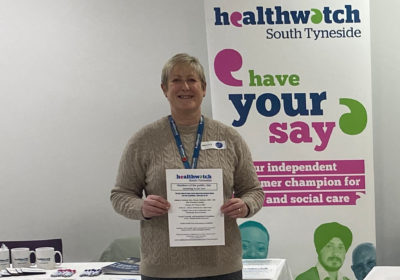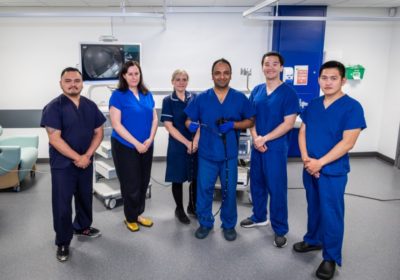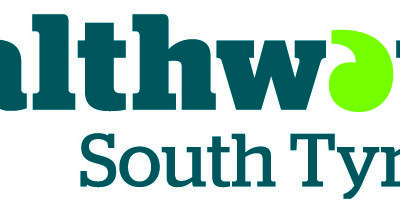Healthcare leaders in South Tyneside and Sunderland have announced they are restarting work to create outstanding future hospital services as part of the ‘Path to Excellence’ clinical transformation programme.
Almost a year ago, Phase Two of ‘Path to Excellence’ was officially paused to allow frontline NHS staff to focus on the response to the COVID-19 pandemic. Now, as the second wave begins to subside, hospital bosses have confirmed that work will resume and will focus on the transformation of surgical services in the first instance.
Surgical teams at South Tyneside and Sunderland NHS Foundation Trust have been discussing the best way to arrange future surgical services since 2016. The ‘working ideas’ published in February 2019 outlined a clear ambition to separate emergency operations from planned operations with multiple benefits for both patients and staff.
This would mean South Tyneside District Hospital would provide only planned operations, with all emergency operations and some planned procedures taking place at Sunderland Royal Hospital. Both hospitals would continue to provide outpatient services as well as diagnostic tests and scans.
The impact of the pandemic and need for stringent infection control measures and separate pathways of care for non-COVID-19 patients, has made the reasons for changing surgical services even more, not less, urgent. The national decision to postpone all non-urgent operations at the start of the pandemic has also left the NHS with a backlog of patients waiting for surgery.
Local NHS leaders want to ensure surgical services are arranged in a way that minimises any such disruption in future and helps the NHS reduce waiting lists and avoid further delays or cancellations for people who need planned operations.
Dr Shaz Wahid, Executive Medical Director at South Tyneside and Sunderland NHS Foundation Trust, said: “Our staff have worked tirelessly throughout the pandemic and had to move quickly to keep patients safe. As we emerge from this second wave, it is now vital that we restart the conversation about how we can improve hospital services for the future to make us even more resilient in the long-term.
“Given the ongoing challenge of COVID-19 we are also being realistic. The scale of service change we had originally set out for Phase Two is huge and our clinical teams do not have time to consider everything, at once, during a global pandemic. But we also cannot delay making some progress which is why we have decided to focus our efforts on surgery first.
“The NHS has been given clear guidance to change and redesign services to help with the recovery from the pandemic. Our ambitions for surgical services will give us the best chance of supporting staff, managing ongoing COVID-19 pressures and providing the very highest quality of care and timely access to all patients who need an operation.”
Surgical teams at South Tyneside and Sunderland NHS Foundation Trust are now busy fine tuning the ‘working ideas’ to make sure any additional learning from COVID-19 is factored into the plans before a formal public consultation is launched later this year.
Whilst efforts for Phase Two of the programme are now focussed solely on surgical services, the local NHS is very clear that pressures on emergency care and acute medicine have not gone away. Clinical teams do, however, need more time to debate and discuss the impact of COVID-19. Any future planned changes to the Trust’s Emergency Departments and acute medical wards would be subject to the same rigorous process and a separate public consultation in due course.
Ambitions to improve planned care and outpatient services are now already fast becoming reality, with more services than ever before being delivered closer to people’s homes across South Tyneside and Sunderland. COVID-19 has accelerated many positive changes with almost half of planned hospital appointments now happening virtually, either by telephone or video.
The Trust’s plans for a new Integrated Diagnostic and Imaging Centre have also not gone away. Increasing capacity to carry out more tests and scans will be vital to help local services recover from the pandemic and reduce waiting lists. Both of these areas of work will now continue as part of routine business planning and will no longer fall under the Path to Excellence programme.
Dr Matthew Walmsley, local South Tyneside GP and chair of NHS South Tyneside Clinical Commissioning Group (CCG) said: “There is no doubt that COVID-19 has increased the pressures on NHS staff and services. Our local hospitals have coped admirably with the challenges of the pandemic but we must now reset our long-term thinking.
“By focussing on improving our surgical pathways we will be much better placed to deal with the ongoing need for strict infection prevention and control measures and minimise any further ongoing delays to planned services as a result of COVID-19.”
“As we progress these plans, one of things we are making absolutely certain of is that any decisions we make around the future of surgical services do not negatively impact or influence how we deliver emergency care and medicine in the future – this is vital and a really important.”
Dr Ian Pattison, local Sunderland GP and chair of NHS Sunderland CCG said: “We cannot lose focus on the vital quality improvements we still need to make in some of our hospital services and we also cannot delay making some progress. It is right that we look at how we can make progress which will help ensure patients continue to have surgery when they need it and to help protect NHS services against future pandemics.
“By publishing our ‘Updated Draft Case for Change (February 2021)’, we are being completely transparent on the current thinking coming from our hospital teams and giving people the opportunity to influence any future ideas that could eventually form part of a formal public consultation later in the year.”
To help explain why the transformation of services must now restart, the Path to Excellence programme has published an updated draft case for change (February 2021). Over the next few months the NHS will do further work to refine the ‘working ideas’ for surgical services and continue to consider the impact of COVID-19.
The programme is actively seeking the views of staff, patients and stakeholders to gain their views on what is important to them to make hospital services better. Feedback will be included as part of developing proposals which will be subject to a public consultation later in the year.
Find out more about the updated Draft Case for Change and ways to get involved and give views.






